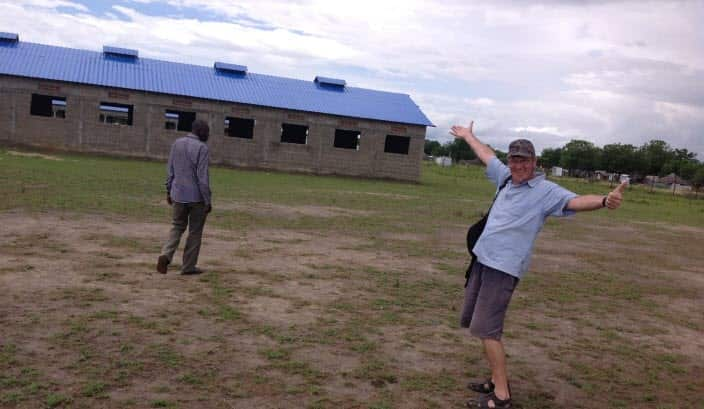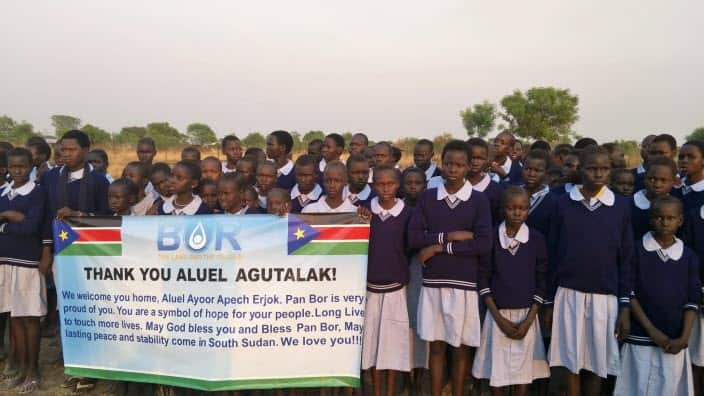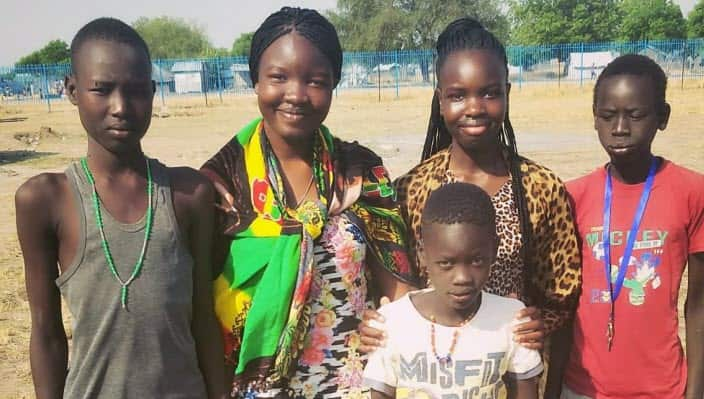A team of Australian South Sudanese women, friends and volunteers inaugurated a new school in South Sudan last week. To be known as the Mading Bor Girls Grammar School, the new school comes as an initiative of the Melbourne-based Baai-Bor Women Welfare Foundation.
Aluel Ayoor Apech, Hellen Berberi and many other women founded the Baai-Bor Women Welfare Foundation in 2008, and Apech tells SBS Dinka their organisation was specifically created to complete projects such as this one.
“In 2008, I called some of my friends and then we formed Baai-Bor Women Welfare Foundation,” Apech says. “We needed to build this school to help orphaned children - especially girls - to be able to have hope once again.”

George Hendry is 68-year-old Australian who regularly volunteers his time to help build schools in war-torn countries. He joined the group in 2010 and went to South Sudan the same year. Hendry helped to lead the construction of the new school, but sadly lost friends during the 2013 South Sudanese Civil War in the city Bor. That tragedy halted the school’s construction for five years.
“In 2010, I read an article in a newspaper [about the project] and Aluel Ayoor wrote it,” Hendry says, “I approached her and asked if I could help. In the same year, I came to South Sudan. Having built schools in different countries, I have seen poverty at its worst. In South Sudan, I once sat down in the middle of the road and cried - it was the people that were so sad. There was poverty, there was war, and there were the results of war. So people looked like they had run out of happiness. That was when we decided to work with Aluel to build the school.”

The Mading Bor Girls Grammar School caters for 300 girls aged from six to 14 years of age, and 50 students from an orphan background will be given free tuition at the school. Hendry says that the fear orphaned girls would have to be turned away motivated the team to establish the scholarship program.
“In our school, we have six classrooms that will be catering for 300 hundred girls,” he says. “We will run it as a private school, and we will allow 50 orphaned children a free education… We would have to turn away many of them if we did not… if a child who does not have parents turns up, how can you tell them that you cannot come to school because there is no room?”
Berberi, Apech, Hendry and others were able to raise over $200,000 to fund the school’s construction, relying primarily on the generosity of Australians involved in schools and community clubs.
“For years, we went to many schools in Melbourne, Kew, and Toorak,” says Apech. “We would give speeches, and then children in those girls school would do some fundraising for us. Much of the money that we used to build the school came from the Australian people in schools, Rotary clubs, Lions clubs and the work George was doing in Traralgon areas.”
The school was officially opened last week in Bor, with hundreds of people attending the event. Among those in attendance were Apech’s two daughters, who took time off from school to support their mother. They were also joined by a 73-year-old Melburnian named Martin who helped paint the fence before the event.
Atong , Apech’s 15-year-old daughter, who was herself born in the Kakuma Refugee Camp, tells SBS Dinka that it was shocking to see the level of suffering in Bor.

“We are here to support our mother because she builds a girls school here for girls who do not have education,” she says. “Life is very sad because there are a lot of children on the roadside who do not have families. There is not enough food and houses are nowhere either. It makes me hopeless and at the same time happy that I have a better life and I should be appreciative of what I have."

